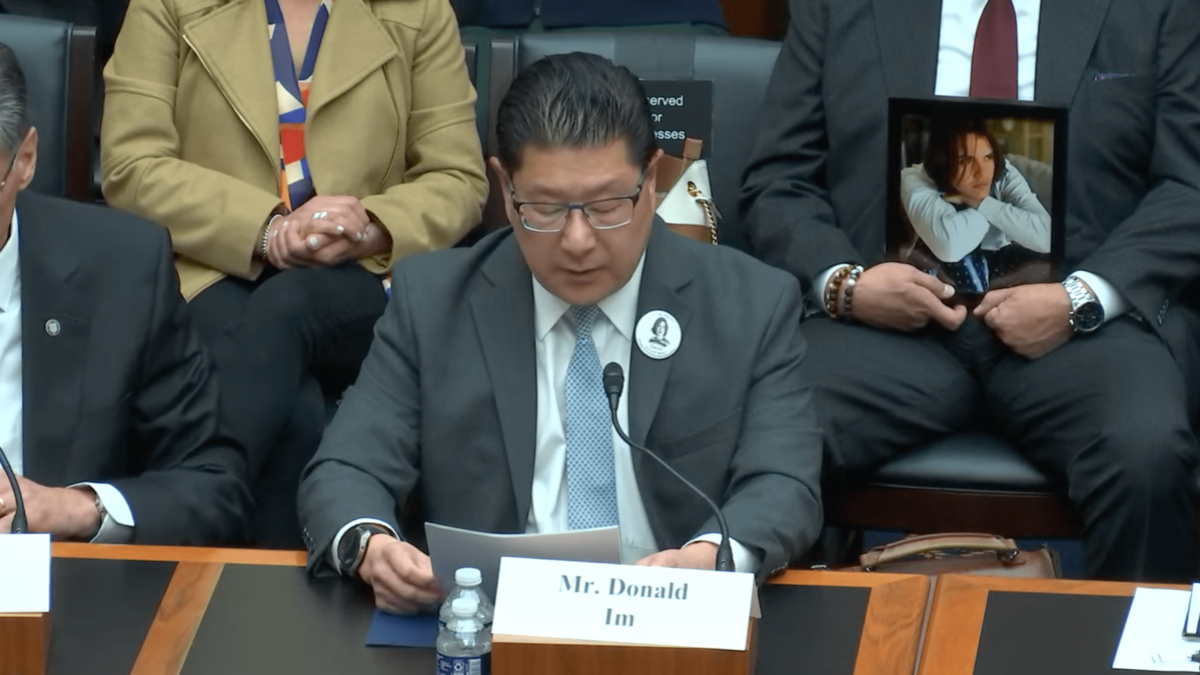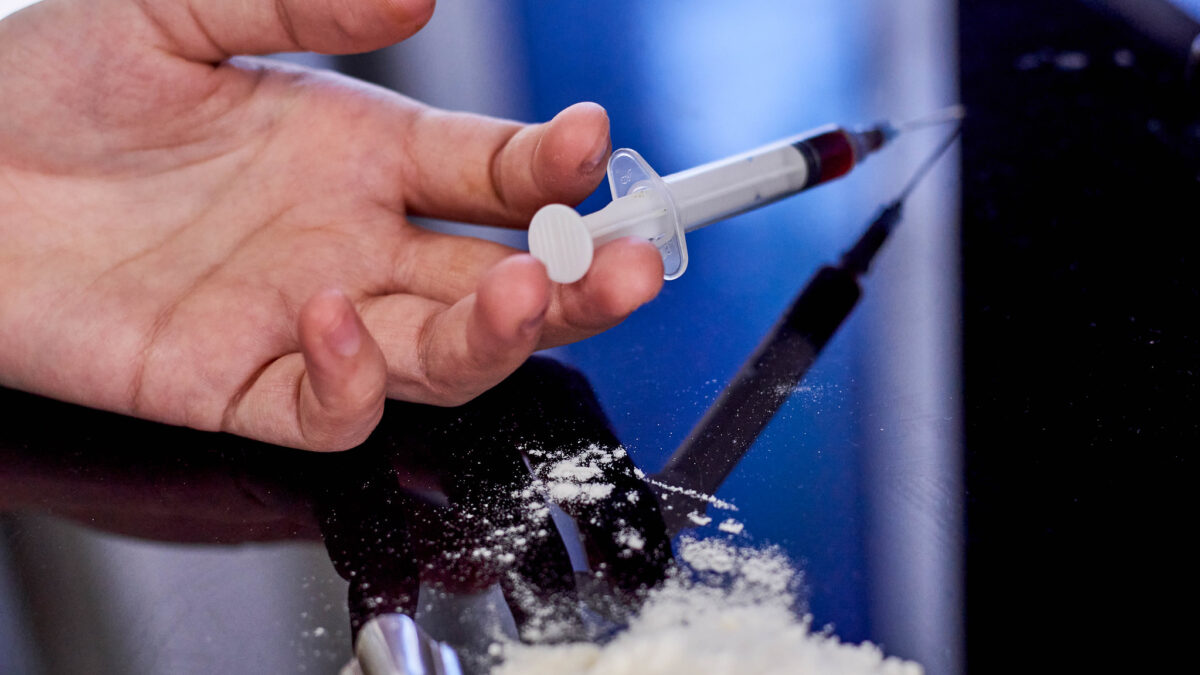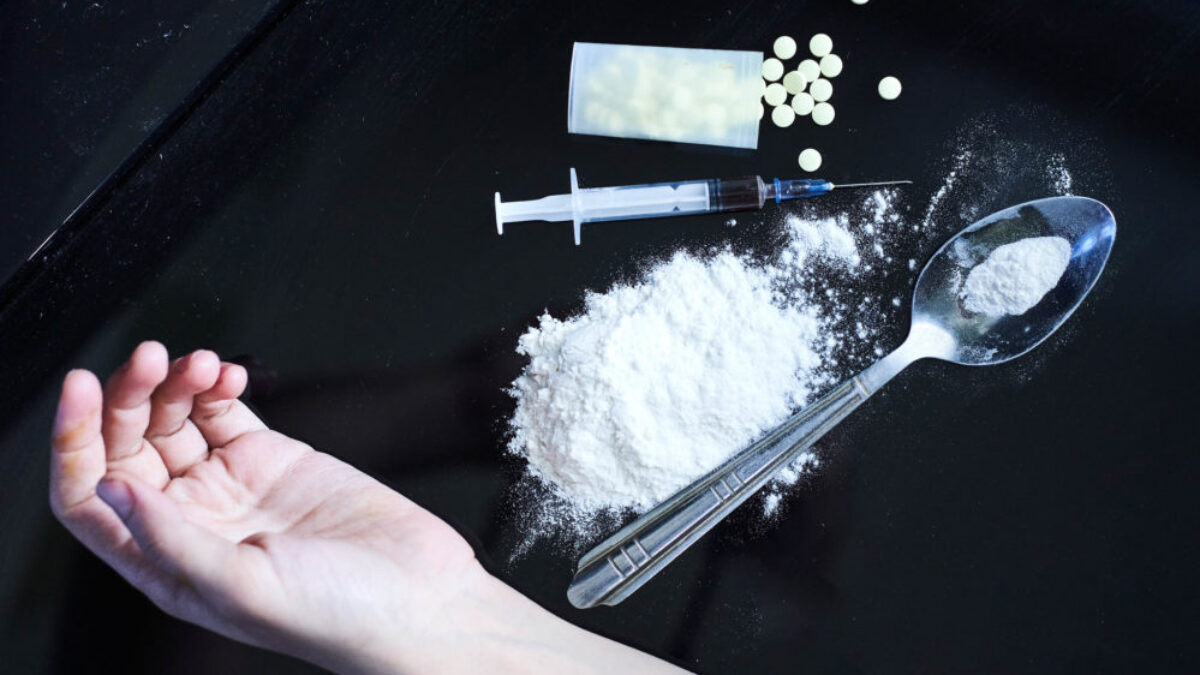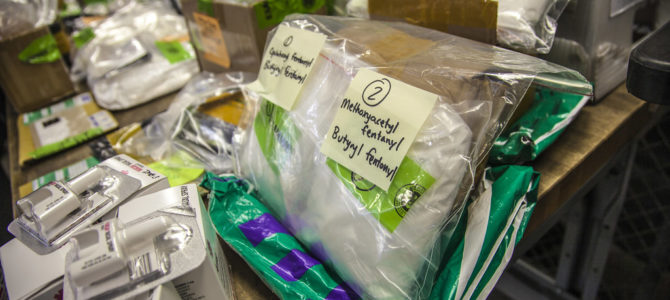
A great number of libertarians are celebrating the end of the war on drugs too early. In fact, they have been doing so since 2012. That fall, Washington state and Colorado made politics briefly matter when their citizens voted yes on legalized recreational marijuana. That bizarre step was the first one in reversing a 40-year—or century-old, depending on definitions—policy that has spawned violence, broken families, and a shredded Fourth Amendment.
But the war on drugs isn’t over. We’ve barely begun discussing the potential legalization of substances other than marijuana. Stephen Colbert interviewed Ohio Gov. John Kasich recently in his capacity as new host of “The Late Show.” Colbert discussed the now-failed (and controversial, even among legalization advocates) recreational marijuana bill lawmakers in Kasich’s state voted on. In the interview, Colbert made some salient points about the nastiness of the war on drugs and the relative mildness of marijuana. Then he and Kasich agreed that nobody was considering anything as wacky as legalizing heroin.
The war on drugs is hanging on hard. We haven’t begun to consider abolishing the Drug Enforcement Administration (DEA), legalizing all drugs for adults, and concentrating on real crime. So what, in his Federalist piece, is Patrick Fletchall complaining about? Basically, weed is bad for people, so it’s bad that Oregon legalized it, but it’s good because someday Fletchall’s brand new son (congrats!) will be a better employee by comparison. That’s all.
A Brief Libertarian Card-Check
I try to check my own tendencies to play the game of who is a true libertarian (perhaps it’s mandatory for that political philosophy, but nobody’s perfect). However, Fletchall makes this impulse impossible. When writing about his boy, Fletchall writes that someday they’ll have a chat about “whether something is morally right just because it’s legal.”
That’s an important point too often brushed over by people who teach their kids that one is the same as the other. Legality and morality are often miles apart, after all. More promisingly still, Fletchall also writes “As a libertarian, I’m not a fan of government dictating the personal choices in my life. Most of the time, I just want them to keep me safe, pave my roads, and leave me alone.”
Fantastic. Then in the next breath, this self-proclaimed libertarian writes that he was “disappointed” about the recent weed legalization in Oregon. What Fletchall means, unfortunately, is that he’s a libertarian in theory and in no way in practice. He’d like to think of himself as one, but he isn’t.
The War on Drugs Isn’t Just about Drugs
The war on drugs was the worst domestic policy decision since Jim Crow. Liberals are correct that it also had a racist origin, but it expanded beyond that into a mechanism for fueling militarized, paranoid police. The principles of prohibition’s failures have reached Washington state, Colorado, and Oregon. Twenty-three states and Washington DC have legalized medical marijuana. We do, however, still have DEA. We have a DEA head who says medical marijuana is a fraud.
The Fourth Amendment’s current status is bruised and battered, and the drug war has a great deal to do with that. Exigent circumstances make it easier for cops to quickly break down a door. Civil asset forfeiture makes policing profitable. Hovering 300 feet over a property in a helicopter is legal, according to the Supreme Court.
Even post-PATRIOT Act, supposed terrorism powers such as sneak and peek warrants—where the object of investigation doesn’t know he is being targeted—end up being used for drug investigations. We also have parallel construction where a National Security Agency investigation leads to potential drug crime, so the DEA is tipped off, with defendants never knowing the source of the case against them. AT&T and the DEA stored phone numbers for decades.
The war on drugs has leaked into Afghanistan and permeated Latin America, where DEA agents sometimes seemingly act as commando squads. In the 40-odd years since Richard Nixon first uttered the phrase “war on drugs,” it has cost more than $1 trillion.
Americans have died because of the war on drugs, more of them than anybody has bothered to count. The scores of thousands of Mexicans who died in that nation’s particularly literal drug war also have American prohibition to blame in part for fueling cartel’s profits.
Ill Effects Aren’t a Sure Thing
But why bother with the trail of casualties when it’s easier to be snarky? Or mention the myriad studies that suggest weed has some health benefits after all? There is a potential correlation between weed and smaller waist size, and weed and shrunken tumors. Marijuana appears to definitely help with seizures. It is, however, difficult to be certain about marijuana’s precise health benefits, in part due to the decades of restrictions on studies put into place by the federal government.
Fletchall is dead wrong that weed is worse than alcohol. Again, you cannot overdose on marijuana. If you ingest too much of it, you’re in for an unpleasant 45 minutes, perhaps, and then you’re likely to calm down.
Of course people should use caution when ingesting this substance, or any, especially for the first time. And yes, teenage brains are particularly malleable. Drug use is more dangerous for them, and should be discouraged by their parents. But, realistically, trying marijuana or alcohol at that age is still not a sign that a teen is one step away from sitting homeless in the gutter. People are, thankfully, much more resilient than that.
Ignoring Markets Doesn’t End Them
Fletchall seems happy, though. After expressing his disappointment in Oregon voters, he is now okay seeing these horrible pot heads lining up in front of newly-legal dispensaries, because his son will someday have a better chance at a good job. But alcohol can and does ruin someone’s son’s chances at a good job, too, and alcohol prohibition was also a disaster. Millions of people enjoy alcohol in moderation, even if hundreds of years ago people swooned in outrage over its ruinous powers. So why is weed such a horror?
Why does Fletchall think this is the end times because in one state one leg of the exceedingly unlibertarian drug war has ended? Why does he believe he’s a libertarian when he mourns this progress? Is his strange condescension towards not just his infant son (who will seemingly need empty-headed morons to compete against in order to rise in the working world), but every one of the 100 million Americans who has smoked marijuana something he confuses for insight? Would just a list of the successful Americans who have smoked pot in their lives have been a better answer to Fletchall’s piece? His jovial-fearmongering-cynical attitude is bizarre.
Regardless of his concern over a world gone idiocracy thanks to potheads, the drug war is ending. It is ending at a painfully slow pace and its legacy cannot be erased. Perhaps there will be a slight upswing in marijuana use as this horrible policy crumbles, perhaps not.
If so, it will be undramatic. After all, the best lesson of the drug war continues to be how little effect the law had on the habits of people who always knew it was their choice what to put in their bodies, and that markets go on no matter how confidently the men and women in Washington DC believe they can stamp them out.









